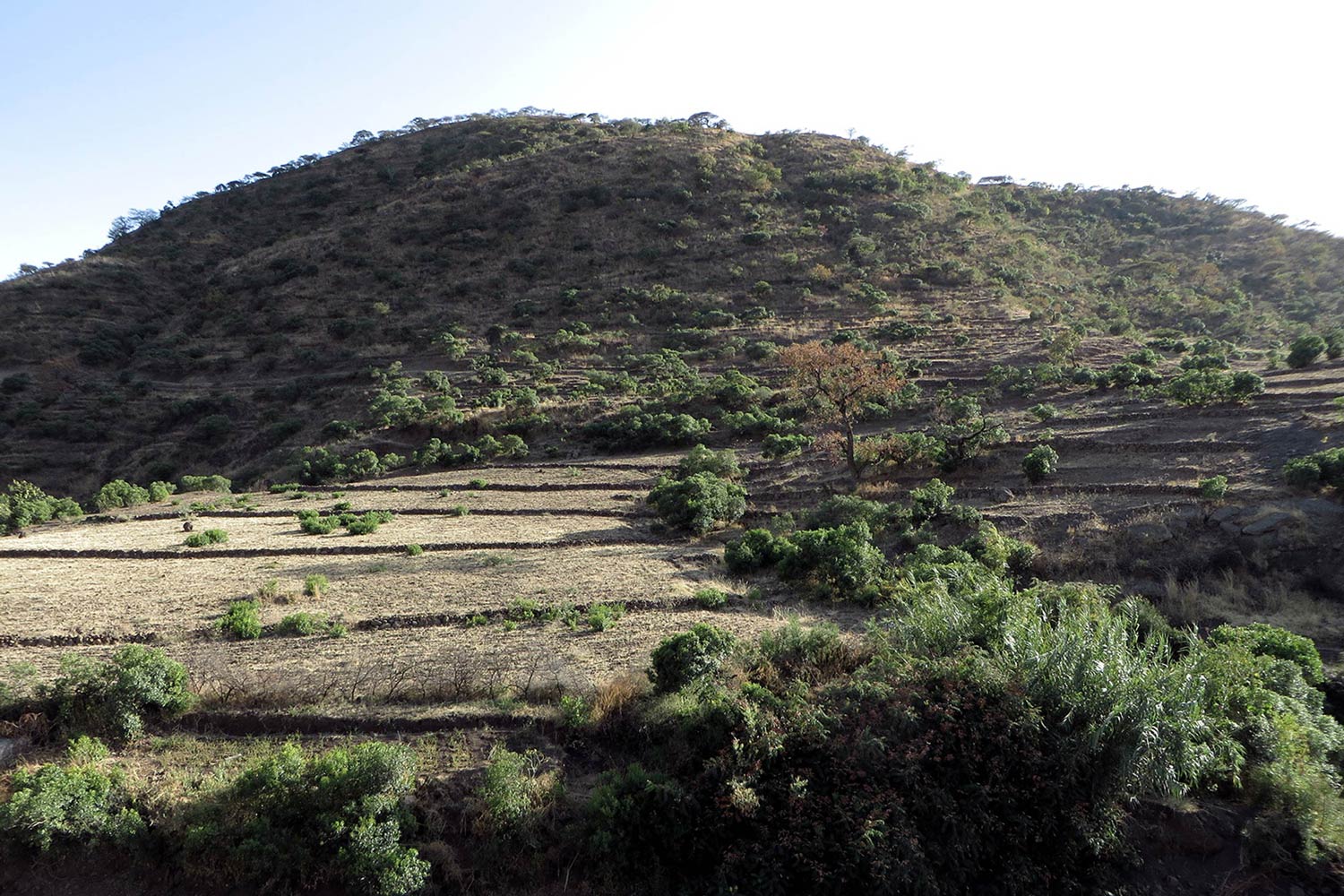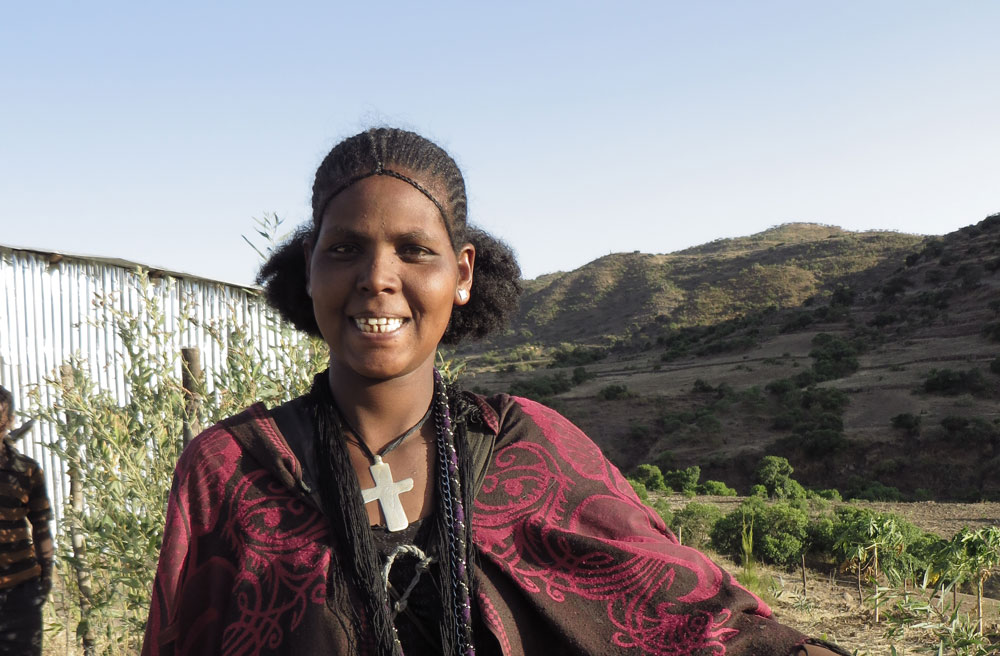
Mar 22, 2017
Improving resiliencey for communities affected by drought

On World Water Day, you can help small-scale farmers in Ethiopia and elsewhere to increase their access to water and grow more food for themselves and their families.
“Before there was only one permanent spring in the area, now there are three,” says Berzegen Yimam. She’s seen firsthand how the Lalibela Food Security Project in Ethiopia has increased ground water levels near her village in the Shumshaha region.
As the Secretary of the local watershed conservation committee, Berzegen works with other community members to build soil and water conservation structures on the sloped and eroded hills surrounding the river.
Soil degradation is a significant concern in Shumshaha as the land has been steadily depleted through continuous use and overgrazing. The absence of vegetation means that rain water does not soak into the soil, but instead rapidly runs downhill taking layers of fertile soil with it. Erratic weather patterns caused by climate change have decreased the region’s overall amount of rain while increasing the intensity of rainfall.
“Before the project, we just watched the soil walk away,” says Berzegen.
Through the support of CLWR and Lutheran World Federation Ethiopia, community members have built irrigation structures and planted saplings on the eroded slopes to control the soil and water runoff. They have also protected the area with fences to prevent livestock grazing and give the natural vegetation the chance to regrow.
These activities have had a positive impact on the natural environment and improved the community’s resilience to drought and the impacts of climate change. The trees and vegetation that now cover the sides of previously bare hills have improved the soil’s ability to retain water and nutrients. Ground water levels have increased, increasing the number of springs that can provide water for household and livestock consumption. The grasses and plants that are grown within the protected area can be harvested and saved for feeding livestock during seasons of drought. Fruit from the planted fruit tree saplings can also be consumed within the household or sold for profit.
Globally drought ranks as the single most common cause of severe food shortages in developing countries. In Ethiopia alone, more than 57 million people have been affected by drought in the past 30 years. Over the last ten years, you have supported 17 projects throughout Ethiopia aimed at establishing water conservation and irrigation systems. For more than 60,000 people in vulnerable communities, these projects have improved their access to sustainable food sources and increased their ability to respond to a changing, and more extreme, climate. Thank you for your support!
“You visit the earth and water it, you greatly enrich it; the river of God is full of water; you provide the people with grain, for so you have prepared it.” Psalm 65:9
Maryanne Mutch is the Program Analyst for Canadian Lutheran World Relief


